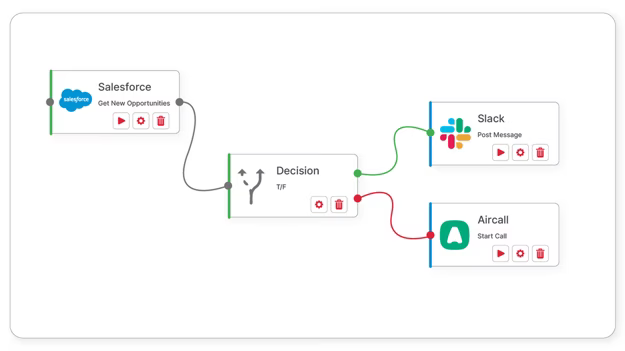
Businesses continually seek ways to enhance their IT infrastructure for greater efficiency, security, and scalability. One prominent solution that has emerged is the private cloud. Understanding what a private cloud is and how it operates, especially compared to traditional on-premises options, is crucial for executives aiming to make informed decisions about their organisation’s IT strategy.
Understanding Private Cloud
A private cloud is a computing environment dedicated exclusively to a single organisation. Unlike public clouds, which serve multiple tenants, a private cloud offers a highly secure and customisable infrastructure that can be either hosted on-premises or managed by a third-party service provider. The primary advantage of a private cloud lies in its ability to deliver cloud benefits—such as scalability, flexibility, and resource efficiency—within a controlled and secure setting.

Private Cloud vs. On-Premises Solutions
Traditionally, businesses relied on on-premises IT solutions, where servers, storage, and networking equipment are owned, managed, and maintained internally. While this model provides complete control over the infrastructure, it also entails significant capital expenditure, maintenance costs, and scalability challenges.
In contrast, a private cloud leverages virtualisation technology to abstract and pool computing resources, which can then be dynamically allocated as needed. This approach offers several advantages over traditional on-premises solutions.
Firstly, private clouds can scale resources up or down based on demand, ensuring optimal utilisation without the need for substantial upfront investments. Secondly, by using a private cloud, organisations can reduce hardware and maintenance costs while benefiting from a pay-as-you-go model.
Thirdly, private clouds support a flexible and wide range of service models, including Infrastructure as a Service (IaaS), Platform as a Service (PaaS), and Software as a Service (SaaS), facilitating diverse application deployment needs. Finally, advanced management tools in private clouds provide comprehensive monitoring, automation, and orchestration capabilities, enhancing operational efficiency.
Private Cloud Embedded iPaaS Examples
An emerging trend within private clouds is the integration of embedded Integration Platform as a Service (iPaaS) solutions. iPaaS provides a suite of cloud services designed to enable seamless integration of applications and data across various environments. In a private cloud, embedded iPaaS solutions offer several compelling examples of their utility.
For instance, data integration, an Embedded iPaaS facilitates the integration of disparate data sources within the private cloud, ensuring data consistency and availability across applications. As well as application connectivity, organisations can seamlessly connect on-premises and cloud-based applications, enhancing workflow automation and business process efficiency.

An embedded iPaaS will also help with API management, they can manage and secure APIs, enabling the creation of robust, scalable, and secure application ecosystems.
Data Governance and Data Sovereignty
Two critical considerations for executives when adopting a private cloud are data governance and data sovereignty.
Data Governance refers to the policies, processes, and standards that ensure the proper management, quality, and security of data within the organisation. Private clouds offer robust tools and frameworks to enforce data governance policies, providing visibility and control over data access, usage, and compliance.
Data Sovereignty concerns the jurisdictional control and legal regulations governing data storage and processing. For organisations operating in regions with stringent data privacy laws, such as GDPR in the European Union, a private cloud ensures that data remains within specified geographic boundaries, thereby meeting regulatory requirements and reducing legal risks.
Private Cloud and Scalability
One of the most significant advantages of private clouds is their inherent scalability. Traditional on-premises solutions often struggle to adapt to fluctuating business demands, leading to over-provisioning or resource shortages.
Private clouds address these challenges through:
- Elastic Resource Allocation: Private clouds can automatically scale resources up or down based on real-time demand, ensuring that applications receive the necessary computing power and storage without manual intervention.
- Cost Management: Scalability in a private cloud environment enables organisations to pay only for the resources they use, optimising IT spending and avoiding unnecessary expenditures.
- Business Agility: The ability to quickly provision and de-provision resources allows businesses to respond swiftly to market changes, new opportunities, and emerging threats, maintaining a competitive edge.
Conclusion
For executives, understanding the nuances of private clouds is crucial in crafting an effective IT strategy. By offering a blend of scalability, security, and flexibility, private clouds provide a compelling alternative to traditional on-premises solutions. The integration of embedded iPaaS solutions enhances data and application integration, while robust data governance and sovereignty frameworks ensure compliance with regulatory requirements. Ultimately, the private cloud empowers organisations to achieve greater operational efficiency, agility, and cost-effectiveness, positioning them for success in the digital age.
Investing in a private cloud infrastructure can be a transformative step towards modernising IT capabilities and driving sustainable business growth. As the digital landscape continues to evolve, the adoption of private clouds will likely become an increasingly strategic imperative for organisations worldwide.


